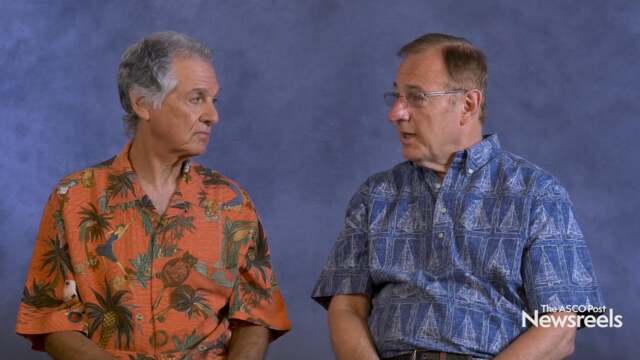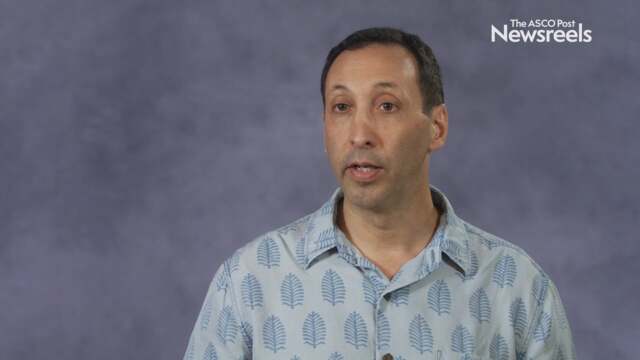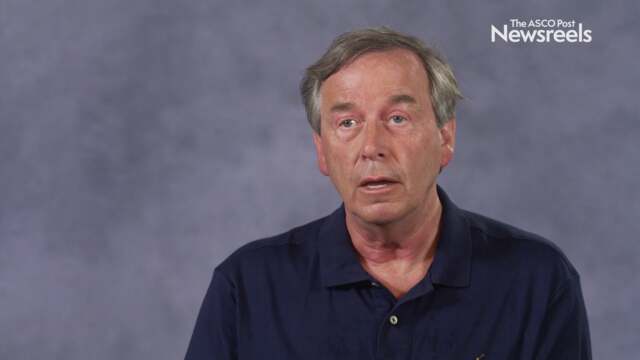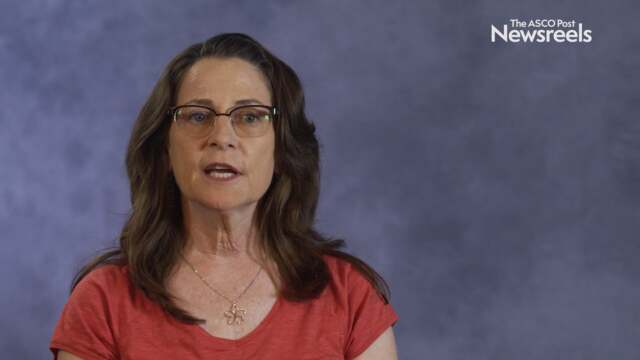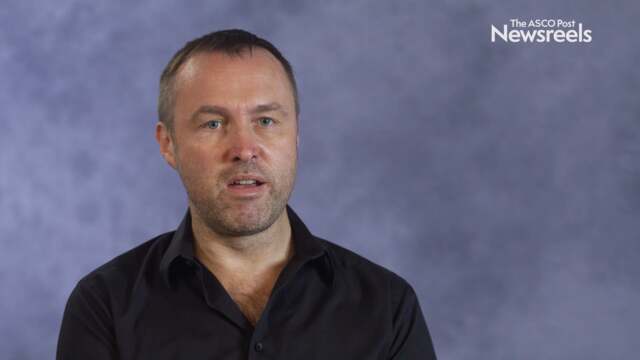Julie M. Vose, MD, MBA, on Lymphoma: Novel Pathways for Targeted Agents
Pan Pacific Lymphoma Conference 2018
Julie M. Vose, MD, MBA, of the University of Nebraska Medical Center, discusses promising pathways for inhibitors—BTK, PI3K, EZH2, bcl-2—and the clinical trials for single agents and combinations that suggest their potential for lymphoma treatment.
Bruce D. Cheson, MD, of Georgetown University Hospital, and Richard I. Fisher, MD, of Fox Chase Cancer Center, discuss ways to incorporate PET and CT scanning into standard of care for and research studies on lymphoma.
Steven M. Horwitz, MD, of Memorial Sloan Kettering Cancer Center, discusses aggressive subtypes of peripheral T-cell lymphoma and the coming data that may help clarify what could be the most effective treatments.
John G. Gribben, MD, DSc, of the Barts Cancer Institute, discusses how understanding the role of the tumor microenvironment can help identify treatment targets, including combination therapies, and improve outcome for patients with indolent lymphomas.
Peggy Burhenn, MS, RN-BC, AOCNS, of the City of Hope National Medical Center, discusses the challenges of working with older lymphoma patients and the importance of effective geriatric assessments.
Kieron M. Dunleavy, MD, of George Washington University, discusses the need for drug combinations to improve lymphoma therapy, despite unexpected toxicities, as our understanding of the molecular biology grows.
